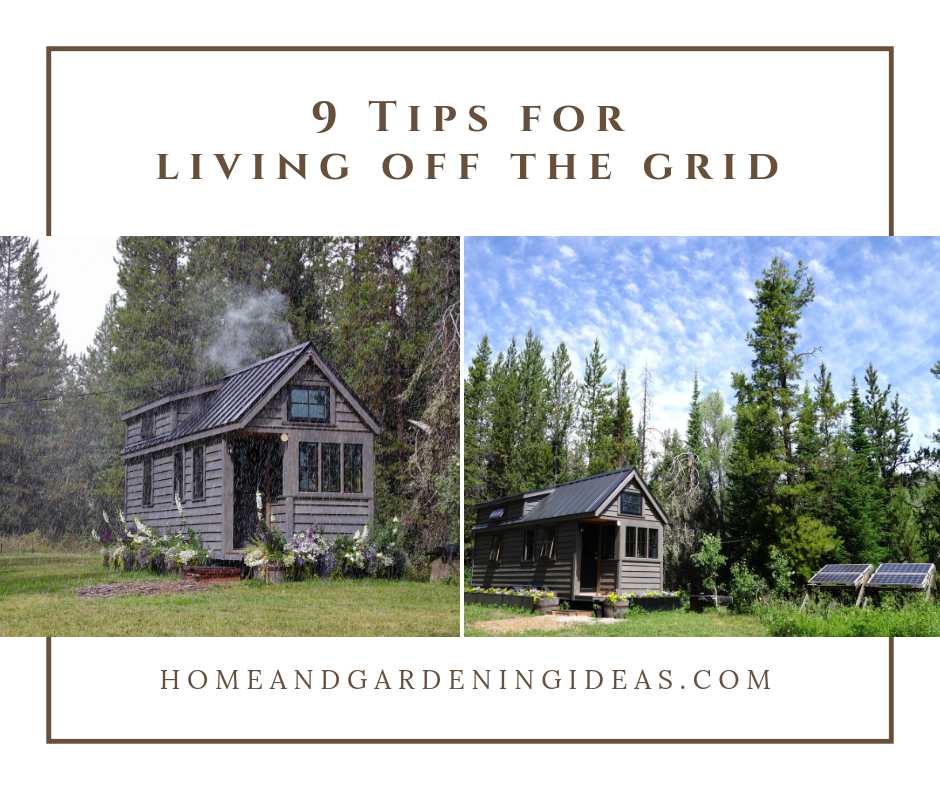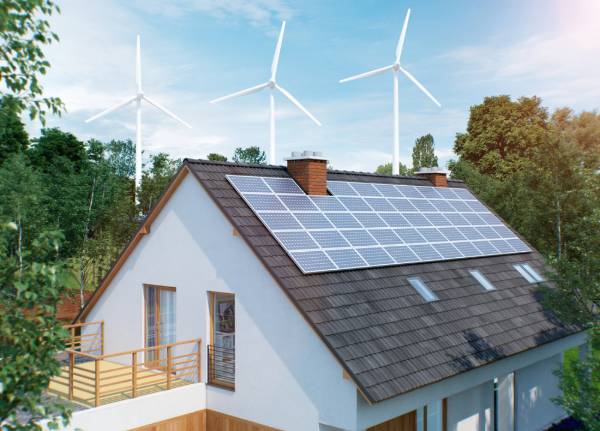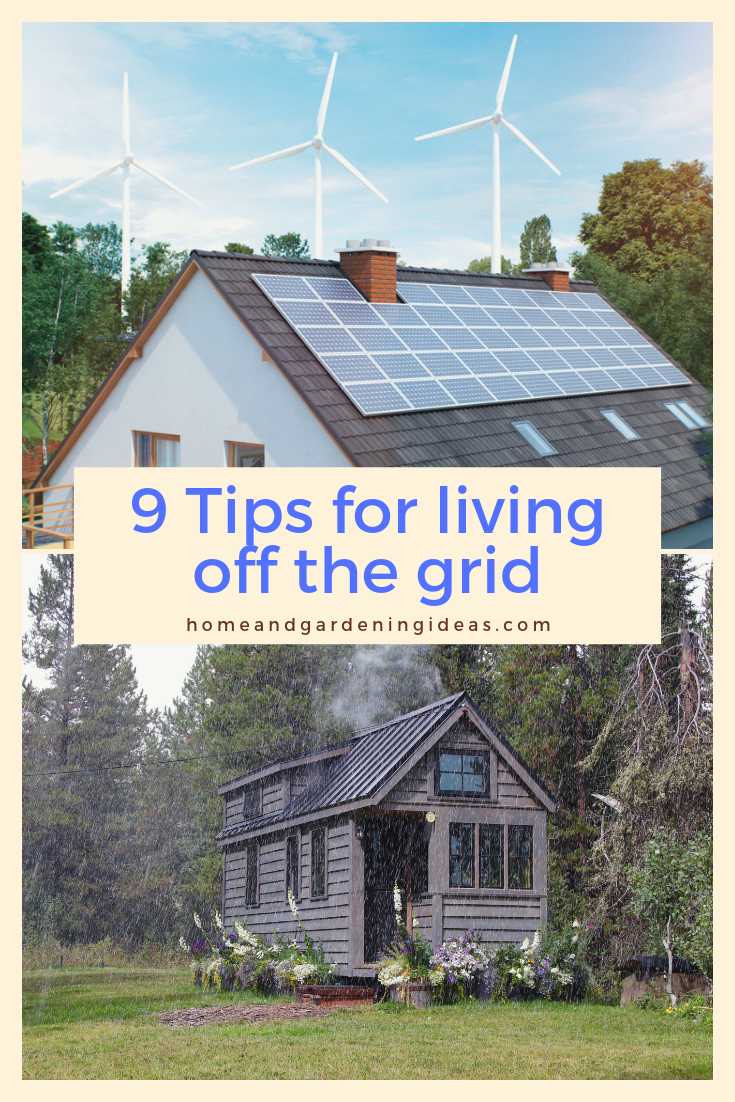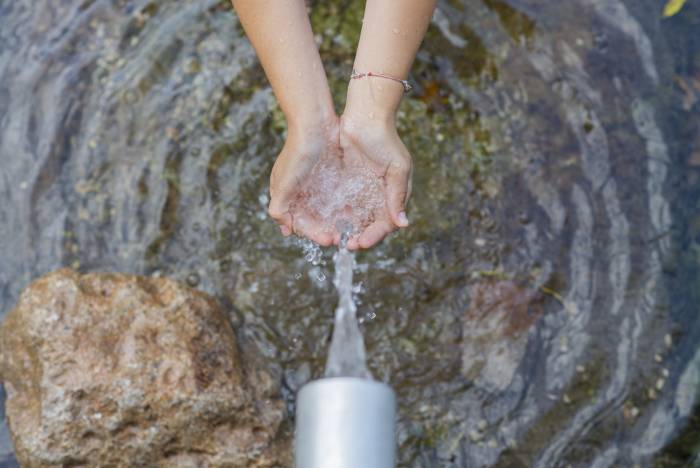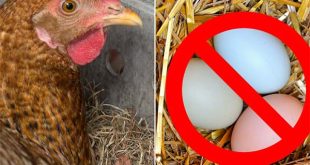9 Tips for living off the grid
Living off the grid involves disconnecting from public resources for power supply, waste disposal and water supply. In earlier years, living off the grid used to mean going to hide somewhere in the woods and being isolated from everyone while living on the barest necessities. But the 21st century and technological advances has made living off the grid a much more comfortable lifestyle and now, living off the grid means being self-reliant (producing your food, power and water) and stepping away from the modern city life.
According to Infoplease, the total number of people living off the grid in the world was up to 1.7 billion as at 2013. Since then, more and more people have started living off the grid successfully. And for numerous reasons, there are still people who dream of when they would be able to live off the grid.
Reasons Why People Choose To Live Off The Grid
- To escape from utility bills: The first advantage that numerous people consider when they are thinking of taking-up the off-grid lifestyle is the fact that they won’t have to pay utility bills including water, power, waste, etc. And as such they can reduce their cost of living.
- To become stewards of the green lifestyle: Many of the people choosing to live off the grid are people who care a lot about the environment and are interested in how to protect it. They believe that by living off the grid, they can reduce their carbon footprint and learn how to conserve and recycle most materials.
- To reduce costs and expenses: Once they’ve settled into the off-grid lifestyle, people who live off the grid usually have less costs and expenses compared to people living in the city. You no longer go shopping, partying, eat out and many of your luxury expenses like your club memberships are non-existent.
- To learn how to become environmentally responsible and live off the land: People who live off the grid learn to avoid wasting anything, grow vegetables, recycle, rear animals and the use of alternate fuels among others.
- To escape the inconveniences of modern/city life: Many people choose to live off the grid to stay in remote areas far away from the overpopulated city, the vast pollutants, and other things that make them unhappy about modern life.
9 Top Tips For Living Off The Grid
- Choose the right location
You may think that location is irrelevant when you decide to live off the grid, but the fact is that your location is quite important. You need to remember that you will need to generate your own water and electricity sources (usually from the sun and wind).
Therefore, you need to take the following into consideration when choosing the right location for you to live off-grid:
- Available natural resources
- Availability of wildlife
- Soil quality
- Source of water
- The weather: how sunny or rainy is the area
- You Need To Have Multiple Sources Of Power
Choosing the off-grid living doesn’t mean disconnecting from other people in the world and as such you need to keep your personal devices charged. The best way to live a comfortable off-grid lifestyle is to have more than one power source such as solar, wind energy and even a gasoline-powered generator. However, the off-the-grid lifestyle involves lowering your usage of power as much as possible. This means you will need to strictly cut down your energy expenditures and avoid power wastage.
- Cooking
Many people get their gas from the gas company and as such cooking off the grid is another challenge that you need to overcome. You can buy a wood burning stove/oven if you can afford it which serves the dual purpose of cooking and heating your kitchen. The best cookware for people living off-the-grid is the cast iron cookware which can be used on any heat source, it is easy to maintain and it is very durable.
- Grow And Maintain A Garden And Other Food Production Source
In order to maintain your sustainable off-the-grid lifestyle, you’re going to need to maintain a vegetable garden as well as some fruit trees. You can also make your garden self-sustaining with Permaculture. You should also try other food production sources other than gardening because of problems like drought and flood. You can try sprout gardening in mason jars, indoor container gardening and hydroponics.
- Have A Source Of Income
The truth is, although you’ve cut your expenses by more than half by living off the grid, you still have expenses. Although you may not have a salary job like you would in the city, you need to find another way other gardening and livestock-rearing to meet your needs. You can start a business based on the needs and problems that you noticed in your living area which you can solve or you can also work online as a remote worker or freelancer. read more on ways to make money at home – 10 Ways to Make Money at Home
- Consider Rearing Livestock
Apart from hunting and fishing, you also need to find a way to make meat readily available. And the best solution is to rear livestock like chickens, rabbits, goats, pigs, and so on. Their manure can also serve as fertilizer for your garden and chickens can also lay eggs and eat garden pests. You can also start an indoor insect farm which will serve as another meat option. Which Chicken Breed is Right for Your Homestead?
- First Aid
Apart from stocking your first aid kit with the necessary first aid materials, you should also consider developing herbal remedies and learning how to do first aid with the available materials.
- Water Source
For your water, you would surely need a source of potable water which is one of those factors you consider when you’re searching for a location to start your off-grid life. You may need to dig a well, collect rainwater and find a way to get water from a nearby spring, stream or river.
- Consider other heating and cooling options
Unlike public utility, solar power can’t provide heating for every room in your house especially in the winter. As a result, you may need to find other means to keep your home warm during the winter and cool during the summer. The best way to do that is with ceiling and wall insulation, cleverly designing your house, paying attention to window size, glass doors facing the sun, choosing the right window curtains, and so on.
If you’re considering living off the grid, you should first consider your capabilities and your ability to persistently pursue the off-grid lifestyle before going into it because it can be quite expensive to start an off-grid lifestyle and leaving halfway would be a huge waste of money. If you know you can manage the lifestyle, the tips provided in this article should be able to give you an idea of how to go about living the off-grid lifestyle.
 Home and Gardening Ideas At home and Gardening ideas we believe inspiring readers about homesteading, self sufficiency
Home and Gardening Ideas At home and Gardening ideas we believe inspiring readers about homesteading, self sufficiency
